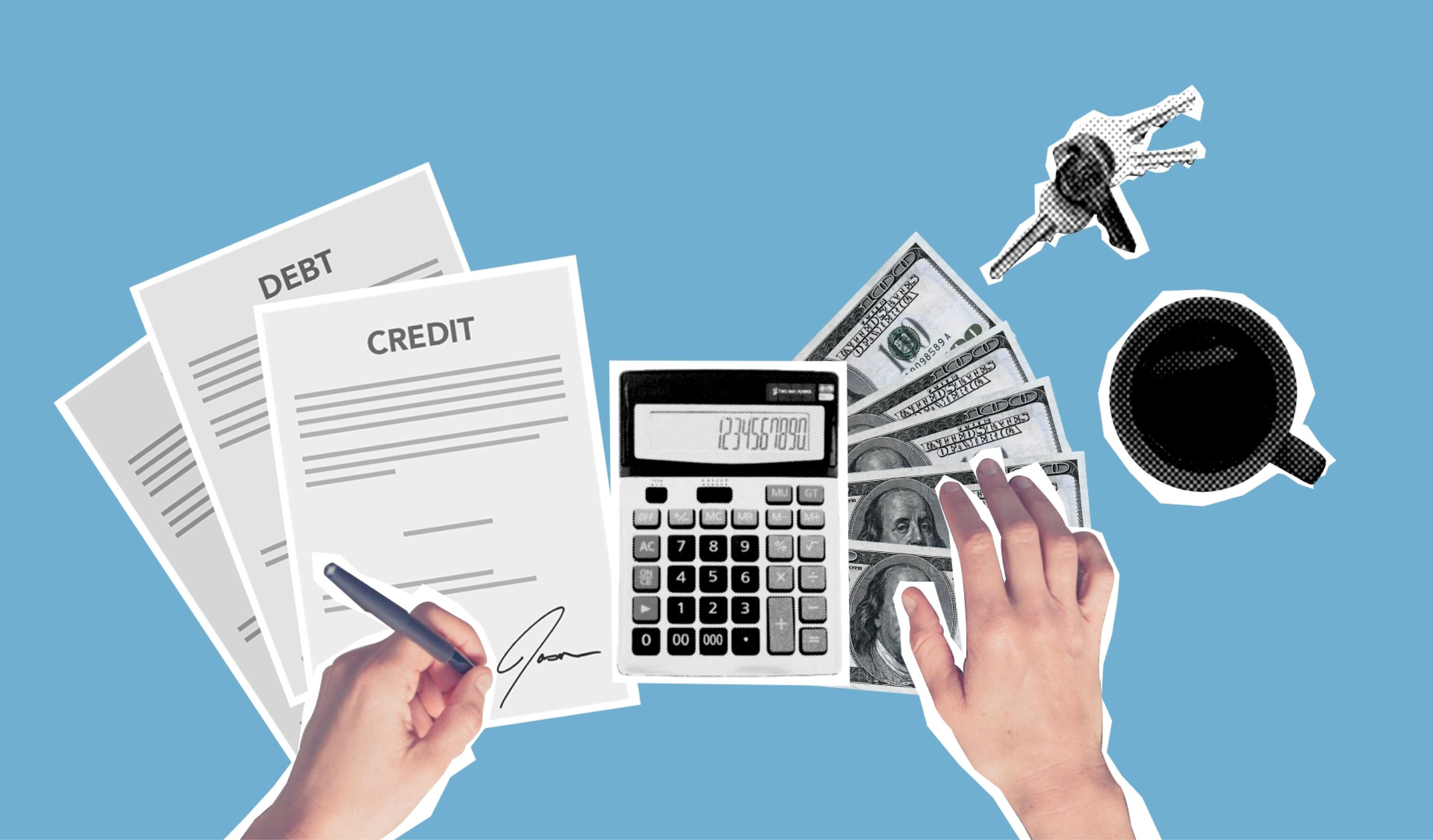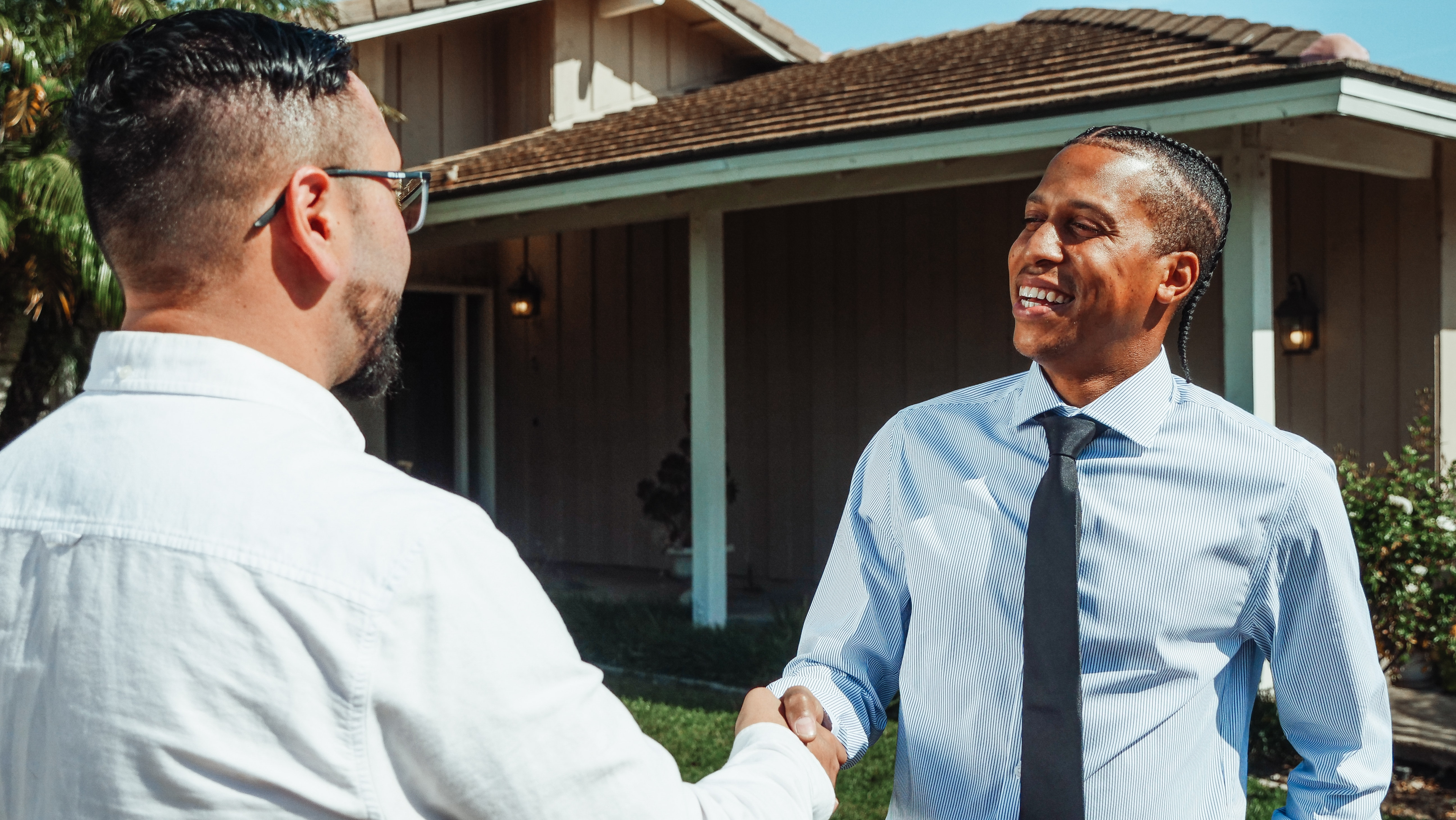
For many people, the dream of owning a home is one that they hope to achieve one day. Unfortunately, in today’s economy, that dream has become increasingly difficult to realize. But what if you’re determined to buy a house?
As a responsible young adult, you may be asking: “I make 25k a year—can I buy a house?” We understand that feeling—buying a home is a rewarding prospect. Even if you’re making a modest gross monthly income, there are still plenty of ways to make homeownership possible.
But before you start shopping for a place you can truly call your own, it’s essential to explore all of your options and take advantage of helpful programs so you can buy your dream home without breaking the bank. Don’t give up hope – read on to learn more about how to buy a house on a budget with these tips.
Determine How Much You Can Afford
When calculating how much a house you can afford, you need to consider factors to figure out what it will cost you each month. Here are the main things to take into account:
Down Payment
The down payment is the amount of money that you must pay upfront when buying a home. A typical minimum down payment would start at 20% of the house’s value, but some mortgage lenders may require a higher down payment—especially if you have poor credit or lower cash on hand. However, even if you don’t have the minimum required by your mortgage lender, there are still ways to save enough money to make a down payment.
Monthly Mortgage Payment
The most important thing to consider is what kind of mortgage payment you can comfortably make. To do this, it is important to evaluate both your current income and your future earning potential. For example, if you want a $2,000 a month mortgage but you’re only making a gross monthly income of $1,000 now and that is not expected to change in the near future, then you might feel stuck. However, if your career is growing or if you have other potential sources of income like a spouse or inheritance, then you may be able to get a higher loan amount without making your budget too tight.
Debt-to-Income Ratio

Debt-to-income ratio is a key factor in getting approved for a home mortgage. It’s a measurement of the amount of your monthly income that is allocated for debt payments, and it gives lenders an idea of your ability to make your mortgage payments on time each month.
A high debt-to-income ratio could mean that you are overextended and may have trouble making your payments, while a low debt-to-income ratio could indicate that you have plenty of room in your budget for your mortgage payments. Mortgage lenders will typically want to see a debt-to-income ratio of 36% or less when considering you for a home loan, though this can vary depending on the type of loan you’re applying for.
To determine your debt-to-income ratio, simply sum up all of your monthly debt payments and divide by your monthly income. Debt generally includes any recurring monthly payments like car loans, student loans, credit cards, and child support. Anything that isn’t considered Debt can be subtracted from your monthly income before calculating your debt-to-income ratio.
If possible, try to pay off any other debts before getting a new mortgage because the interest will end up being added to the cost of your house. It’s also wise to put some money away in savings so that if something goes wrong with the house or with your finances, you’ll have some financial cushion beneath you.
Low-Cost Home Loan Options
Low-cost home loans are available for a wide range of situations. In fact, you may be able to get one even if you have bad credit or no credit at all. Here are some options to consider:
Federal Housing Administration (FHA) Loans. These programs are backed by the federal government and are considered to be among the most affordable types of mortgages. They are designed for first-time buyers who don’t have large down payments and can’t afford high closing costs. The government insures FHA loans, so lenders can offer them at lower rates than conventional mortgages, which means you will pay less in interest over time.
Loans With Zero Down Payment for First-Time Homebuyers. These programs are a solution for people who don’t have much saved up for a down payment but are ready and willing to buy a house.
VA loans. VA mortgages are also backed by the federal government but they are only available to veterans or active duty service members. Unlike FHA loans, VA mortgages don’t require a down payment or private mortgage insurance (PMI) premiums. Veterans who qualify for VA loans can use their entitlement in full or partial with no maximum limit on how much can be used for closing costs, prepaid items, and discount points.
USDA Rural Development Loans. These loans are aimed at rural homeowners who might not otherwise qualify for financing due to their location or lack of income.
Calculate Your Monthly Expenses

Calculating your monthly expenses can be the first step in ensuring that you’re financially stable enough for homeownership.
The average American household spends around $2,000 per month on housing. This number is the sum of all housing costs: the mortgage payment, property taxes, insurance, utility bills, and any other ongoing expenses that can’t easily be avoided. If you want to buy a house but struggle with your finances, it’s important to keep this number in mind when calculating how much you can spend on a house.
If you don’t have enough money coming in to cover these expenses every month—which would take into account not only your mortgage payments but also other necessary costs—you may find that what looks like an affordable home is actually more expensive than expected.
Save Up for a Down Payment
A down payment can be one of the largest financial decisions that a person makes to secure a home. The function of a down payment is to help reduce risk by lowering the amount owed on the property. The biggest risk with not having enough saved is that you may lose your home if you do not have the cash to pay off the mortgage or other obligations.
The size of your down payment will affect how much you end up paying overtime because most lenders have pre-set interest rate curves that determine what your interest rate will be based on how much is borrowed.
Going into debt for a down payment will affect your finances for years to come. It is important that you save up for this large expense instead of borrowing money. Here are some tips on how to save up for a down payment:
1. Make saving a priority. If you don’t make saving for a down payment a top priority, it will never happen. Start by putting aside as much cash as possible. Even if it’s just $50 per month, do whatever you can to get started saving up for your dream home.
2. Put extra money towards your emergency fund first. Having an emergency fund in place will help protect you from this happening again in the future. If something unexpected comes up and you don’t have any cash saved up, things could get bad fast.
3. Pay off high-interest credit card debt. If you have credit card debt or other high-interest loans that charge more than 10%, pay those off before trying to save for a down payment. Not only will this help you save faster, but it will also lower your monthly expenses.
4. Cut back on nonessential spending. While it may seem like common sense, many people spend money on things they don’t really need or care about. Cut back on these expenses by finding cheaper ways.
5. Create a budget and stick to it. A budget is simply a plan for how to spend money: it’s about you taking control of your finances and making sure that you’re sticking to your goals. When you make a budget, you are deciding where your income will go—it can be used to help you save for a down payment.
6. Increase your income. If you have time and are able to take on a side job or two, even something as simple as babysitting or dog-walking could be an easy way to put some extra cash in your pocket each month that can go toward saving for a down payment.
Research Different Neighborhoods

Although buying a home on a middle-class salary remains challenging, with careful planning it can be done – in some locations. Factoring in debt payments, savings, and a down payment, home buyers with a middle-class salary can afford homes in 15 cities.
Careful planning and research will help you stay realistic about your budget as well as your expectations. Here are a few tips to help you narrow down your options and find the perfect neighborhood for you:
1. Define your must-haves. What are your deal-breakers? What amenities are you hoping for in a neighborhood? Write them down so you have a clear idea of what you’re looking for.
2. Consider commute times. How long are you willing to commute to work or school? Keep in mind that commute times can fluctuate depending on traffic, so you may want to choose a neighborhood that’s closer to your work or school.
3. Research crime rates. This is an important factor to consider if you have children or plan on walking around the neighborhood. Look up the crime rates for different neighborhoods before making a decision.
4. Check out the local schools. If you have children or plan on having children, it’s important to research the local schools in the area. Find out about test scores, class sizes, and extracurricular activities.
Find the Right Real Estate Agent
Finding the right real estate agent is a critical step in buying a home, especially if you’re on a low budget and looking for a strong negotiation.
The real estate agent is the one who makes sure that everything goes smoothly when buying a house. They are the ones who know the ins and outs of finding a home, which can be a long process. While there are many factors to consider when choosing an agent, don’t forget to focus on the ones that will help you find someone with your best interests in mind. Here are some tips when you’re on a tight budget:
- Look for someone who has experience working with buyers like you, whether they’re first-timers, people on a tight budget, or both.
- Look for someone who can be honest with you about what kind of house or apartment you can afford based on your finances and set realistic expectations about what’s available in your price range.
- A good real estate agent mu be able to negotiate prices so that you can get what you want without breaking the bank.
- Make sure to interview several agents so that you can compare them side by side, and get recommendations from people you trust.
- Once you’ve found the agent that best matches your needs and personality, stick with them and nurture your relationship.
Get Pre-Approved for a Mortgage

Now you’re ready to take on the most crucial steps. The question “I make 25k a year—can I buy a house?” is a good way to start a conversation with a mortgage lender to set your expectations straight.
Getting pre-approved for a mortgage is one of the most important steps to buy a house. Most lenders will require you to submit paperwork including copies of your driver’s license, social security card, and proof of income. If you are to buy a house with a partner, both parties should be on the same page about the total amount they can afford to spend and the features they most desire.
One of the biggest factors that lenders will consider is your credit score. This number provides an indication of your creditworthiness and is used to determine the interest rate you will be offered. A higher credit score means a lower interest rate, which can save you thousands of dollars over the life of the loan. Here are a few steps you can do to up your chances of getting approved for a home mortgage:
1. Make sure you pay all of your bills on time. This includes credit card bills, utility bills, and any other type of debt you may have.
2. Keep your credit card balances low. Try to pay more than the minimum payment each month to help pay off the balance quickly and reduce the amount of interest.
3. Avoid opening new credit accounts unless you absolutely need to. Each new account adds another potential source of debt, which can make it more difficult to manage your finances. So while it may be tempting to open a new credit card in order to take advantage of a discount, it’s important to think about the long-term impact on your financial health.
In general, it’s smart to get pre-approved for a mortgage before you start looking at houses. A pre-approval from a lender or bank proves that you have found a loan provider who will give you an approved amount of money—in this case, enough to buy a house—when you’re ready.
The lender will give you a list of all the homes within your price range that best fit what you’re looking for (based on factors like the number of bedrooms and bathrooms). They’ll also tell you how much money you can expect to take out for the down payment, closing costs, and monthly payments. This information should allow you to narrow down your list and make sure that the houses you look at actually fall within your budget.
Takeaway
For most people, buying a house is an essential part of the American dream. You’ve worked hard for your money and you want to invest it in something that will pay off with little maintenance. For others, homeownership is more of a burden than a benefit. If you are struggling to make ends meet, deciding whether to buy a house maybe even more difficult than it would otherwise be. But with careful planning and budgeting and by following the steps and tips above, buying a house can be an opportunity to transform your life.

In her 25-year career, Steph Wilkinson has been involved in the acquisition, marketing and sales of over $3 Billion dollars of residential real estate. A number of years ago, Steph transitioned into Brokerage Leadership for National real estate brands and tech start-ups. She has served as a Business Strategist for real estate agents and brokerages alike and is also a real estate coach and trainer. In her new role with the Iconic Team, Steph will be responsible for the growth of the team and will be working with all of our agents to increase their productivity and bottom line.




